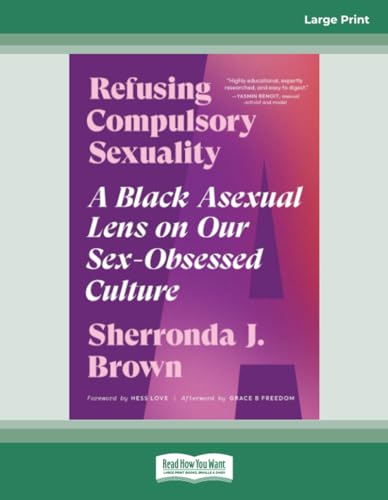What do you think?
Rate this book


374 pages, Paperback
First published September 13, 2022
I believe it is more true to say that asexuality is defined by a relationship to sex that is atypical to what has been decided on by society at large to be normative, and that atypical nature is marked by varying degrees of sexual attraction and desire.
“White supremacy is a slippery, dishonest adversary, setting the clock but never allowing the pendulum to swing freely. It bends time to its will to suit whatever ugly need it has. In this temporal distortion, Black children never exist. Guided by the hands of this two-faced clock, adultification takes root so that Black youth can be denied a childhood, instead being perceived and treated as if they are older than they really are—a perception based in anti-Black stereotypes and logics.”
In order for asexuality to be understood and recognized as the queer identity that it is, sex acts and sexualization would first have to be removed from the center of dominant conceptions of queer identity.
Hyperfocus on queer sex and sex roles is a direct result of the oversexualization of queerness as a means to construct it as nothing more than sexual deviance and also to reassert heteronormative gender roles within queer relations….
What is true of whiteness in every space, even in “progressive” and “inclusive” spaces, is that it will always work to create some form of exclusivity as a means to reassert white superiority. Therefore, white asexuals often claim asexual queerness as a property, just as whiteness itself is claimed as a property, as a space that others are barred from entering into.
"When we prioritize our desires that are present, we are choosing to hold on to the truest part of ourselves that we have always been told should be cast off."
"Acephobes — having been socialized in a world where sex is upheld as an unavoidable inevitability — do not understand full sexual autonomy as a reality for us because they have never seen it as a possibility for themselves."